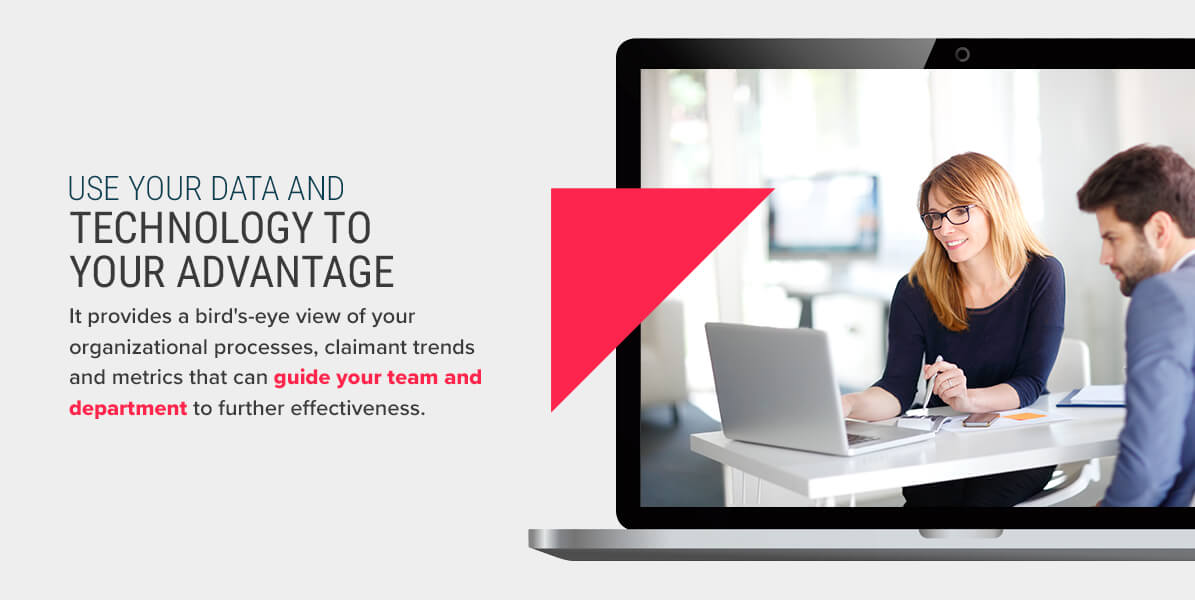Claims management is one of the essential parts of the insurance process. It is a critical part of financial planning and dictates how insurance providers handle customer service. The claims management process involves multiple parties and steps, and obstructions at any of these points can significantly affect the result.
Managing insurance claims is a complex and elaborate process. The claims management process is challenging, and manual processes are laborious and time-consuming. Experts project the global claims management market in health care alone to reach $136.67 billion by 2030. More claims management professionals use technology to improve efficiency, minimize loss and manage the complete claims life cycle.
Outside of digitalization, many in-house methods and tips for claim management can help insurance organizations elevate their processes and provide higher customer satisfaction. As expectations change, claims management must be faster and more comprehensive.
What Is Claims Management?
Claims management identifies, authorizes and resolves insurance claim demands to recover losses. Claims management professionals are responsible for processing claims and handling clients during stressful and vulnerable times.
Traditional claims management involves filling in forms and manual investigations, which can cause delays in authorization and challenges in managing risk. Digitization has brought new processes to claims management, providing transparent, streamlined options from a user-friendly interface. Still, effective claims management relies on systematic processes to provide a satisfactory customer experience.
Claims Handling Tips
The delays are among the most significant challenges in the claims management process. Therefore, effective claims management requires streamlining. Quickly resolving claims is the primary goal for insurance staff and claimants.
Here are some tips for claims management effectiveness.
Enhance Your Team’s Performance
The claims management process requires a team to work together to improve efficiency. Consider how your team members — specifically, your adjusters — perform their roles. What are the benchmarks within your organization? For example, consider how familiar your team is with your policies and protocols.
Take an honest look at where your team is now, so you can set new goals and begin to optimize. Ensure you provide your adjusters with comprehensive training and place them in roles that match their unique strengths. Pay attention to what your staff needs to streamline their processes. Claims management software designed for the adjuster frees them from mundane and repetitive work, providing more employee satisfaction and engagement.
Use Your Data and Technology to Your Advantage
As your team processes claims, they will gather essential data. You should gain actionable insights from those details to streamline your claims process, identify unusual claims and provide you with the information you need for effective decision-making.
Integrating the appropriate software can make your claims management processes considerably more effective. Consider claims management software that offers an incident-based approach to data collection. It provides a bird’s-eye view of your organizational processes, claimant trends and metrics that can guide your team and department to further effectiveness.
Prioritize Your Management
The claims management process has many moving parts — adjuster notes, police reports and customer demands. Several people must review all the information before awarding the claim. Additionally, without the ability to coordinate tasks and reminders across team members, you will risk missing critical deadlines and damaging your firm’s reputation.
A comprehensive claims management system will help your team track where a claim is in the overall process, what actions to take and who is responsible for them. Your team will also have all the necessary information to complete their assigned tasks. This data will help your department stay on track to its efficiency goals.
Take Your Time With Each Claim
Ensure your customer service remains a priority in the face of pressure. Lack of attention could lead to your team overlooking critical details. Assign claims to the most suitable adjusters based on the claim’s complexity and the adjuster’s experience level and provide ongoing coaching and mentoring to team members.
Providing your team with mentorship and open communication channels can help foster collaboration within your team and empower them to make meaningful contributions to the department.
Comply With Relevant Regulations
The claims management industry is subject to many regulations. Every step in the process requires complete adherence to avoid invalidations. Your methods must align with the relevant regulations, and manually intensive processes increase the risk of accidental non-compliance.
Just as your methods must comply with regulations, they must be completely transparent to your customers. Showing you follow the rules fosters trust in your procedures.
Invest in the Best Technology
Customer needs have changed recently, and they expect expedient responses to claims. An application where customers can access your claims management services from their mobile devices is essential to maintain a competitive position in the industry.
Claim adjusters can also benefit from a mobile application. It allows them to access real-time data, regardless of their physical location, to settle claims quickly and efficiently.
The Benefits of Claims Management Software
Effective claims management requires you to streamline and digitize your processes. This process eliminates manual inputs and investigations, which are time-intensive and prone to human error. Claims management and compliance reporting software solutions have many benefits.
- Reducing costs: Streamlining your workflow, maximizing efficiency with an adjuster-centric interface and providing customers faster resolution times will reduce your costs in the long run.
- Improving customer service: With the ability to provide real-time insights into a claim’s status and provide a self-service function, your customers can look forward to faster resolutions and comprehensive service.
- Streamlining processing efficiency: Automation can reduce unnecessary processes and increase efficiency. Automating notifications and document requests helps your team stay on track with claims and reduce their time on each one without sacrificing precision.
- Standardizing processes: Claims management often involves multiple parties. Introducing standard processes and integrating your software with other data sources eliminates discrepancies as information passes to different parties throughout the claim.
- Improving security: Claims management software complies with personal information protection laws, so you can assure your customers that you have protected their data from cybersecurity threats.
Streamline Your Claims Management Processes With APP Tech
The claims management process is a time-consuming and labor-intensive task. As a claims management professional, ensuring your company’s operations are efficient and effective to reduce the claim life cycle and resolve disputes is vital. APP Tech’s Cloud Claims solution can help streamline your claims management process by tracking claims activity and centralizing all your documentation in one location.
Our claims management solution boasts an incident-based architecture, providing stakeholders with real-time insights so they can correct, mitigate or prevent risky claims. For self-insured organizations, third-party administrators, mid-size carriers, or even firms looking to reduce your overall exposure to risk, integrating APP Tech’s Cloud Claims offering into your current strategy ensures your processes comply with claims management best practices.
If you want to learn more about our innovative claims management software solution, please contact us today. One of our solution consultants will be in touch to answer any questions and schedule a demonstration.

Subscribe To Our Email List.
Subscribe to access video classes, webinars and free events

Incident-based claims management software for self-insured companies, third-party administrators, and insurance providers.
Learn More
A Medicare, Medicaid, and SCHIP Extension Act of 2007 (MMSEA) Section 111 reporting compliance solution.
Learn More© 2025 - APP Tech. All Rights Reserved.
SUPPORT
Submit A Ticket
CONTACT
At Your Service
CONTACT
At Your Service
CONTACT
At Your Service
CONTACT







